How Trumps political playbook evolved since he first ran for president in 2000
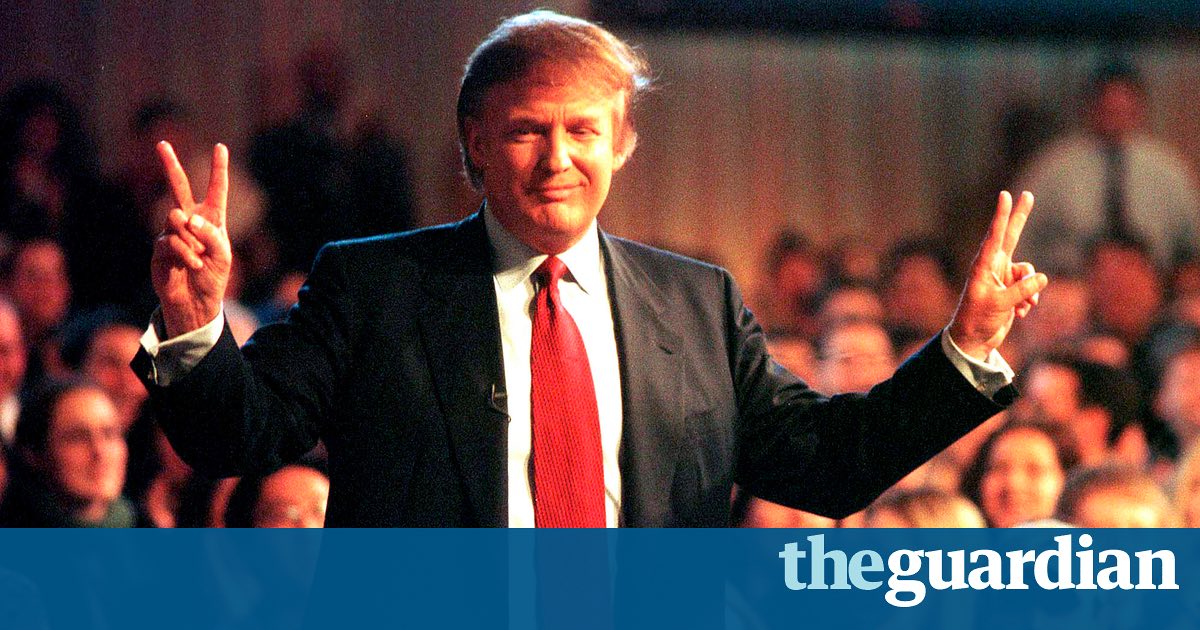
His bid for the Reform party was a preview of threats and paranoia that would characterize his successful 2016 run but some key elements were different
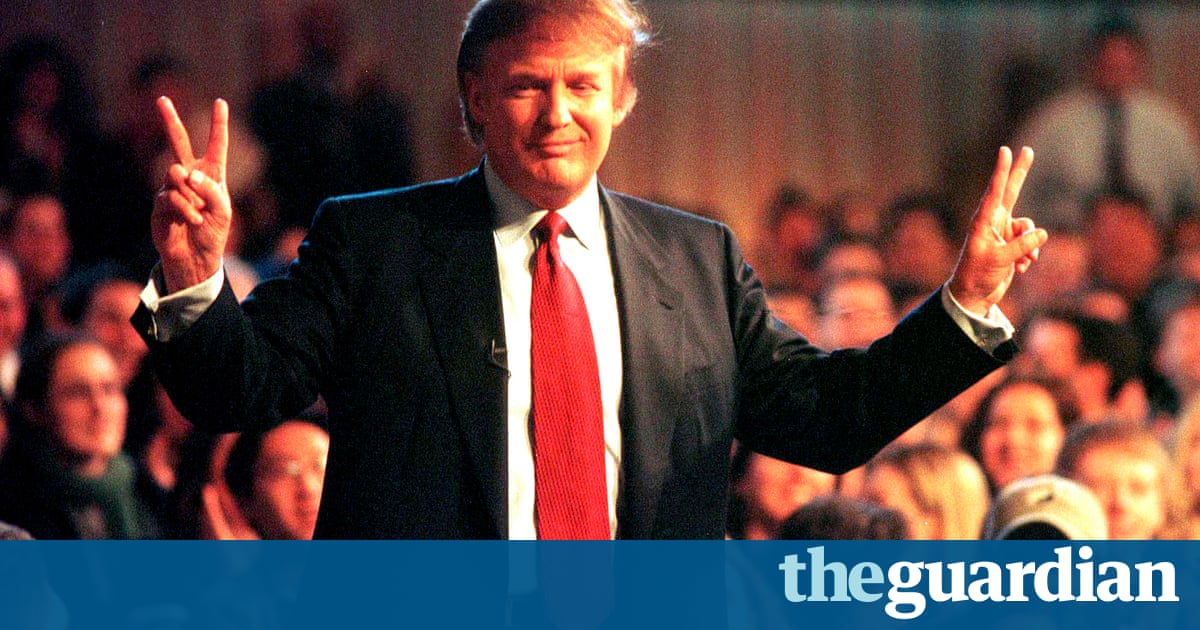
On a windy night 17 years ago, the pre-Apprentice, pre-Twitter, pre-president New York developer Donald Trump could be found greeting Reform party members at his Florida Mar-a-Lago mansion.
Trump 2000 campaign badges had been laid out on an ornate table: the same table where, two weeks ago, Trump tweeted a selfie captioned with the claim he was composing his inaugural address.
The curious numbered in the dozens, mostly Reform party members and off-season Palm Beach society, joined in the strangeness of Trump world by an enthusiastic British man from Yorkshire who made a living doing Al Jolson blackface impressions.
Weve come really from being a very successful businessman to being a very serious candidate, the 53-year-old Trump told the crowd. I am looking very, very seriously on whether it can be won.
Back then, Trump was seeking the nomination of the party created in 1992 as a vehicle for Texan businessman Ross Perot. He was unsuccessful, and he would ultimately withdraw in March 2000, conceding to far right candidate Pat Buchanan, whom Trump had accused of being a Hitler lover.
But what guests heard was a preview of the promises, threats, attention-seeking and paranoia that would characterize his successful 2016 run nearly two decades later. It sounded like a salesmans pitch a string of semi-articulated views construed semi-political policy positions.
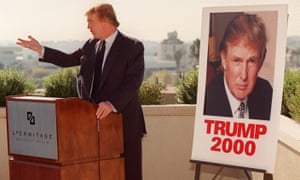
Trump told guests his ideas included a one-time tax on the rich to eliminate the national debt. He declared North Korea the greatest threat to the US. He described himself a big fan of the economic embargo against Cuba and accused Japan (not China) of ripping us off.
He disparaged the field of Republican contenders as a bunch of stiffs. He criticized politicians who make too much of their humble origins as just losers, while wealthy establishment candidates were dismissed as members of a lucky sperm club.
Asked about his image as a womanizer, he offered that if that was an impediment to his candidacy, Im not going to bother.
Trump, who had resigned his membership of the Republican party, told reporters he believed the GOP has become just too crazy right.
Nevertheless, key elements of the extreme Trump familiar to the US in 2017 were not in evidence back then.
Back then, he followed the Reform party view that abortion rights should be kept out of politics. In this era before 9/11, when the country was politically obsessed with Monica Lewinsky and pro-wrestler Jesse Ventura, Trump said nothing about Muslim immigration, torture or energy dependence.
Through his Reform party flirtation, Trump sought the counsel of the New York divorce attorney Raoul Felder.
He was not a political person then and he was not this time, Felder told the Guardian. He wouldnt initiate a conversation about politics. Hes not a politician, hes not a political animal. Nor did he ever explicitly discuss why he sought the presidency, he said. As a deal-maker, Felder said, he just thought he could make a difference.
Through late 1999 and into early 2000, Trump readied his bid. He pledged a personal campaign investment of $100m. Swimwear model Melania Knauss, then 26, his girlfriend, posed on a large presidential seal for Talk magazine and said she would be a traditional first lady, like Jackie Kennedy. I would do social obligations, social events. I will do charities. I love children. On political life, she offered (with Talk magazine attempting to replicate her accent): You play a role. Its a beez-ness.
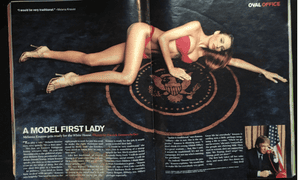
Writing for the Observer, this reporter concluded that Trump cannot be entirely dismissed from the presidential race but, in a precursor of 2016, also dismissed him as politically incoherent and guessed he was toying with politics … a plaything for a brash property magnate consumed with the importance of his own celebrity.
In 2000, Trumps political director Roger Stone, another divisive figure who would reappear in 2016, was already predicting that the time was right for Trumps candidacy because popular culture was beginning to overwhelm the political establishment.
Trump said he believed non-politicians represent the wave of the future.
Im not prepackaged. Im not plastic. Im not scripted. And Im not handled. Ill tell you what I think. Its quite a departure from the usual office-seeking pols, Trump wrote in The America We Deserve, a book published to coincide with his Reform party bid.
Trumps plan was to urge 6.5 million Trump customers people who had stayed in a Trump hotel or gambled in one of his casinos to request a Reform party ballot. He wondered if some of the so-called Trump magic in terms of real estate, in terms of hotels, in terms of everything, translates into votes.
But he also recognized TV was the key to political success. So much depends on if you happen to be talented in that medium, if you can get your point across, he told CBSs Dan Rather. Being good on television doesnt necessarily make you a good president, but if youre not good on TV, youre not going to be president.
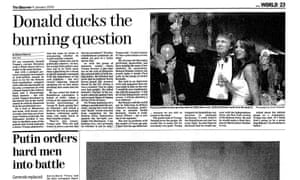
In 2000 Trumps exploratory campaign consisted only of media appearances and meet-and-greets with Reform party members in Florida, Connecticut and California.
He didnt have the mechanisms of the 21st century, Felder said. He was well-known, but as a businessman only. So it was an impossible climb. By this election, he had become more of an acceptable name to the public. Celebrity, not the reason for it, speaks for itself.
But crucially, Trump had Twitter. So he didnt need $200m in the bank just to get started. He didnt have to seek supporters. He caught the pulse of middle America, and they came looking to see what he had to say.
However, Felder warns, if Trump didnt have a political bone in his body in 2000, hes going to need 88 political bones in his body now.
Read more: https://www.theguardian.com/us-news/2017/feb/05/donald-trump-reform-party-2000-president